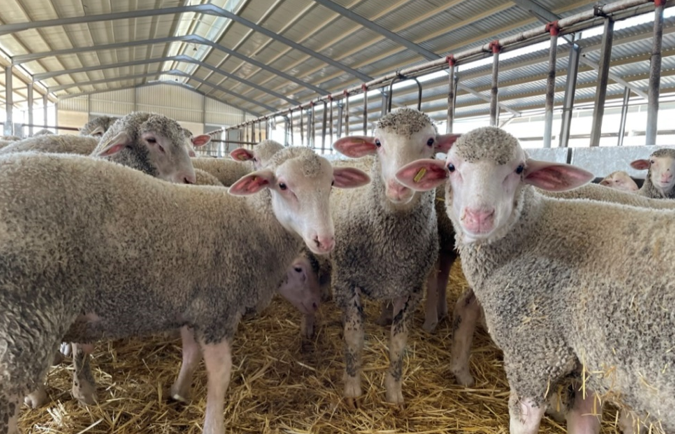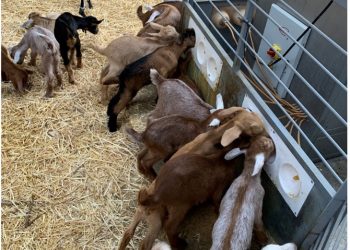What are clostridia?
Clostridia are a group of round-shaped, toxin-producing anaerobic Gram+ bacteria found in the environment and digestive tract. They cause non-contagious toxin infections, mostly with a hyperacute course.

They are grouped into three large groups, depending on the action of the toxin:
– Histotoxic: they affect blood cells, tissue cell membranes and the endothelium. They cause gangrene and edema mainly in muscle tissue.
– Enterotoxic: they increase the permeability, motility and vasodilation of the intestine, and also destroy the mucosa.
– Neurotoxic: they affect the nervous system.
The toxins are responsible for the clinical symptoms, the death of the animal and the lesions found on necropsy.
The main Clostridia
The most common clostridia in small ruminants are:
– C. perfringens: is the most important.
· type D: is the main cause of enterotoxemia and sudden death In the post-mortem inspection, pulpy kidney can be found.
· type B and C: affect young animals, causing hemorrhagic diarrhea and death.
– C. novyi: mainly type B, is the cause of hepatic necrosis.
– C. chauvoei: is responsible for symptomatic anthrax (black leg). We can find animals with lameness and black musculature due to necrosis.
– C. septicum: is responsible for braxy (abomasitis) and malignant edema, and is one of the causes of the most severe economic losses.
– C. sordellii: has similar symptoms to Cl. septicum. Sheep are very susceptible.
– C. tetani: is responsible for tetanus The main sign is rigid paralysis and sudden death.
The different species of clostridia share the genetic code of several toxins, but with different production capacities.
Predisposing factors:
Clostridial diseases are related to the following factors:
– Traumatic injuries or surgical and non-surgical procedures (tail docking, shearing, giving birth, castration, predation, etc.).
– Sudden changes in diet or poor conservation of food.
– Bad colostrum.
– Poor disinfection of the navel.
– Stress.
Conclusions
– Clostridia have a global impact.
– They produce toxins, which are the cause of the pathology.
– They cause various diseases, most of which have a hyperacute course.
– Vaccination is the most effective tool to prevent clostridial disease.
Article written by:
David Raimundo Crespo. Global Product Manager, Small Ruminants Franchise – HIPRA


